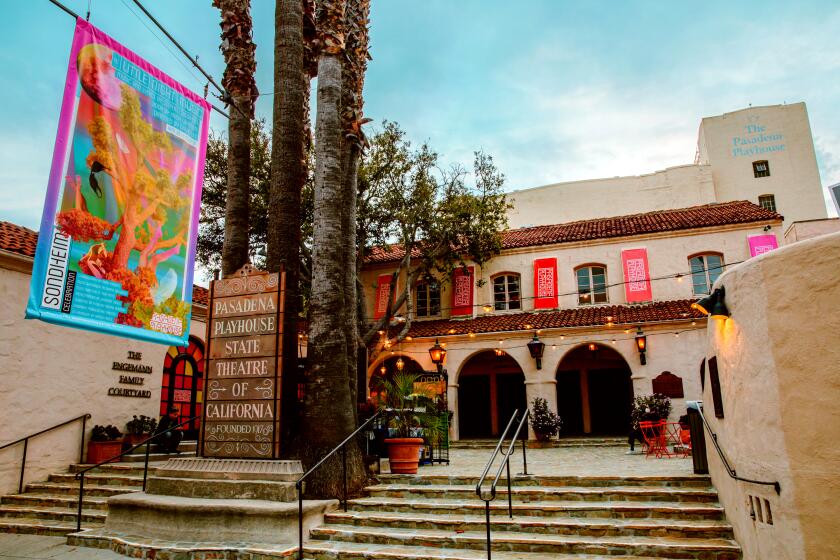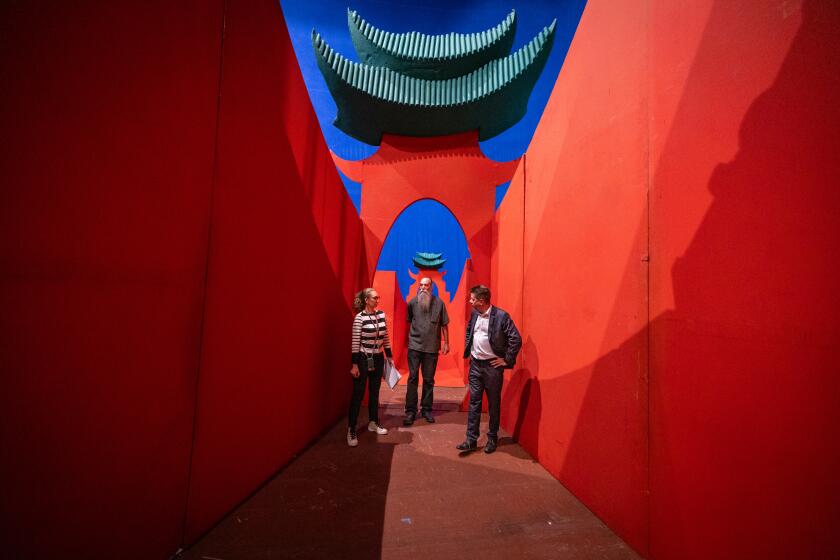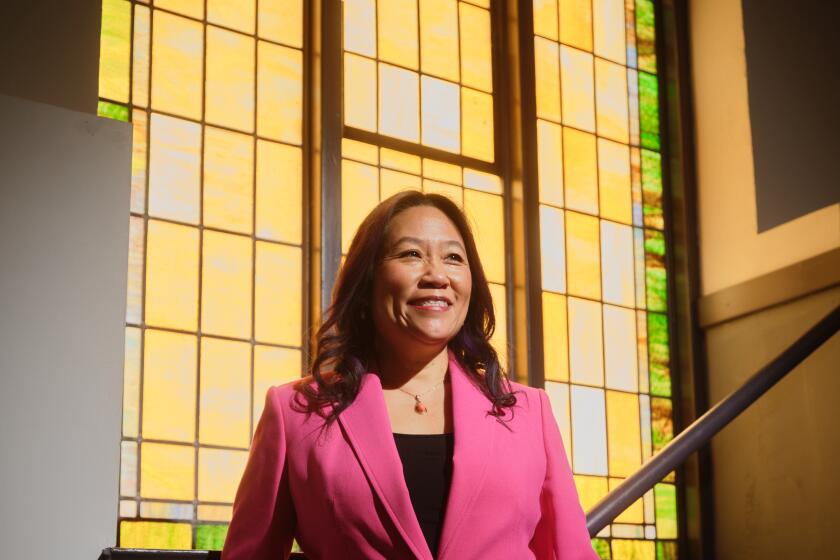Rands’ Seamless ‘Songs of the Sun’
From an outward description, Bertrand Rands’ “Canti del Sole” (Songs of the Sun) might seem to risk bowing under the weight of its ambition. The British composer’s work is part of a trilogy of multilingual settings written over the course of 13 years, on the various cosmic themes of moon, sun and eclipse. For “Songs of the Sun,” which won the 1984 Pulitzer Prize, he drew on 14 different texts from four languages, including the work of D.H. Lawrence, Baudelaire and Rimbaud.
But however monumental its design, as heard on Monday night at Zipper Hall on the Green Umbrella series, the work proceeded seamlessly, and in a taut, Postmodern musical language that challenged as it soothed.
For the record:
12:00 a.m. March 3, 2002 FOR THE RECORD
Los Angeles Times Sunday March 3, 2002 Home Edition Main News Part A Page 2 A2 Desk 1 inches; 26 words Type of Material: Correction
Composer’s name--In a Wednesday Calendar review of a Green Umbrella series concert, a composer was incorrectly identified as Bertrand Rands. The composer’s name is Bernard Rands.
Rands’ moving song cycle was the centerpiece of a concert by the Thornton Contemporary Music Ensemble, from the music school at USC, directed by Donald Crockett. It was also the final event of a USC-sponsored series featuring Rands as artist-in-residence.
Tenor Jonathan Mack gave an impressively persuasive and necessarily flexible reading of the Rands work, backed ably by the 10-piece ensemble. Mack, handy with the abrupt shift of languages, strained expressively upward on Dylan Thomas’ “I turn the corner of prayer and burn,” and dovetailed into a wistful conclusion on Quasimodo’s “And in no time it’s evening.” He exhaled the final, title line like a double-edged commentary on the waning of sunlight and time.
New music concerts should disarm expectations and twist ears, and this one did. The first half featured the startling sound of another Thornton/USC group, the Schoenfeld Cello Ensemble. Eight cellos navigated two West Coast premieres, intriguing in different ways. Finnish composer Kaija Saariaho’s beautiful yet unsentimental “Neiges” celebrated and poeticized textural effects for the cello swarm, while American composer August Read Thomas’ evocative “Blizzard in Paradise” treated the ensemble like one big, cohesive mega-cello.
Percussionist Lynn Vartan gave a bold performance of Kevin Volans’ striking solo work “She Who Sleeps With a Small Blanket,” an energetic romp for dark-toned drums. It’s all about heady bustling, but with an almost hymn-like melodic tag on bass marimba.
More to Read
The biggest entertainment stories
Get our big stories about Hollywood, film, television, music, arts, culture and more right in your inbox as soon as they publish.
You may occasionally receive promotional content from the Los Angeles Times.






